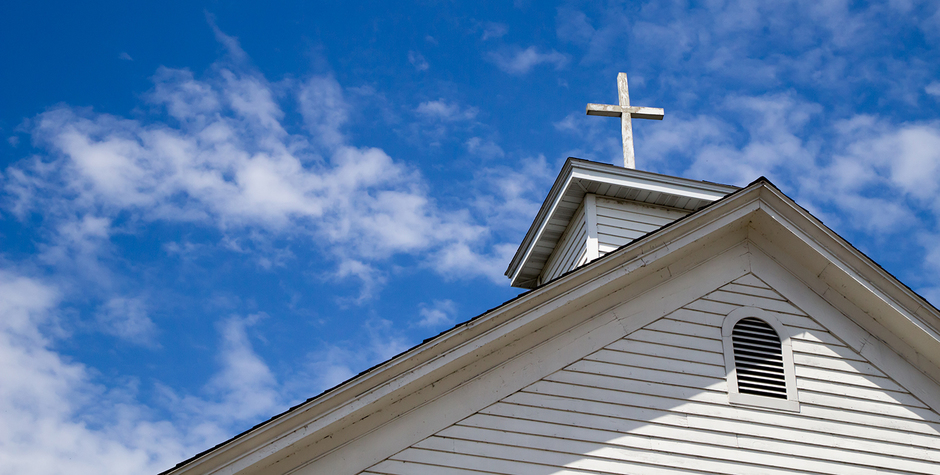ACLJ Files Official Comments with Department of Labor in Support of New Rule Protecting Churches and Religious Organizations
Churches and religious charities are coming under increasing pressure to disregard their faith, as the Left attempts to bury the sacred in red tape. They are hampered in their ability to do the work their faith dictates.
The U.S. Department of Labor (DOL) has proposed a new pro-religious liberty rule that would protect churches and religious charities from being forced to hire outside their faith. Yesterday, we filed legal comments in support of this rule.
Churches and religious organizations routinely engage in community service, disaster relief, and other vital charity work that not only fulfills their spiritual mission but benefits the downtrodden in society and our national community as a whole. Many times these religious organizations receive federal contracts and grants. While the Constitution and federal law clearly protect religious institutions, all too often confusion clouds and these faith-based organizations feel trapped on a false dichotomy in which they must choose between furthering their mission and their faith.
This DOL rule and our official comment seeks to clarify and support churches and religious institutions’ religious liberty.
In our official comments we detailed four vital reason this rule is needed to ensure that churches and religious organizations are afforded the full religious liberty protections enshrined in our Constitution, Supreme Court precedent, and the law. We argued:
- The Proposed Clarification Would Address an Ambiguity in the Law.
Although this Rule is already the current policy, the proposal would clarify some of the ambiguity that religious organizations have faced--ambiguity which has actually prevented some organizations from participating in federal contracts over the last few years. This Rule comes one year after the OFCCP issued a Directive that told employees to “proceed in a manner neutral toward and tolerant of . . . religious beliefs.” . . .
- Religious Organizations Provide an Essential and Quantifiable Net Positive to Society as a Whole by Promoting Charity, Civic Virtues, and Good Citizenship.
It is important to recognize the fact that, as sociologist Robert Putnam has demonstrated, religious organizations provide clear and long-lasting benefits to society generally, benefits that go well beyond merely protecting the beliefs of practitioners, and extend into the secular world as well. In recent studies, for example, Gallup found a similar connection between religion and civic engagement. This includes giving, volunteering, and helping strangers, around the world. That is why it is imperative to make sure religious organizations are able to receive necessary federal contracts to remain viable. . . .
- These Rights are Already Enshrined in the Constitution . . . .
The proposed Rule adheres to this traditional understanding. The Department of Labor is following established Supreme Court jurisprudence using a philosophy of church and state that has sustained our country for centuries and will continue to sustain it for centuries more. . . .
- The Proposed Guidelines Do Not Create New Protections but Rather Use the Tried-And-True Legal Framework of the Civil Rights Act of 1964. . . .
Like the Civil Rights Act of 1964, this proposed Rule will not lead to a slippery slope where any religious individual or group can invalidate important, generally applicable laws. The religious exemptions to anti-discrimination laws have been protecting religious organizations and groups from governmental intrusion for fifty years by exempting them from scrutiny, and still the country has made great strides towards reducing discrimination in every area during that time. . . .
In our conclusion, we reiterated the important need for this rule to protect churches and religious organizations.
The ACLJ urges the Department to adopt the Rule in its entirety. It is imperative that religious liberty is protected and upheld. The Rule is consistent with previous implementations of Title VII protections and further clarifies the protections afforded to religious organizations that require religious accommodations. Without such clarification by the Department, current and potential future religious organizations that wish to contract with the federal government may very well be forced to walk away from their good work. This Rule allows religious employers to keep faithful to their closely held religious tenets and does not force them to make employment decisions that would otherwise compromise their beliefs. Religious organizations deserve to have a clear understanding of their obligations and protections under the law.
In addition to filing our own comments on behalf of more than 72,000 of our members, we also encouraged ACLJ members to file their own comments directly with the DOL. We’re happy to report that the DOL has received 31,480 individual comments, and ACLJ members account for more than 13% of the total, having filed 4,286 individual comments.
The right to hire individuals who share a church or a charity’s faith is one of the most important rights a religious organization possesses. It is particularly important that a faith-based organization’s right to hire like-minded people not be infringed.
For years the ACLJ has been successfully making these arguments in federal appeals courts and at the Supreme Court in defense of religious institutions’ constitutional and statutory religious liberty rights.
The ACLJ will continue to fight for religious liberties and support this rule.
